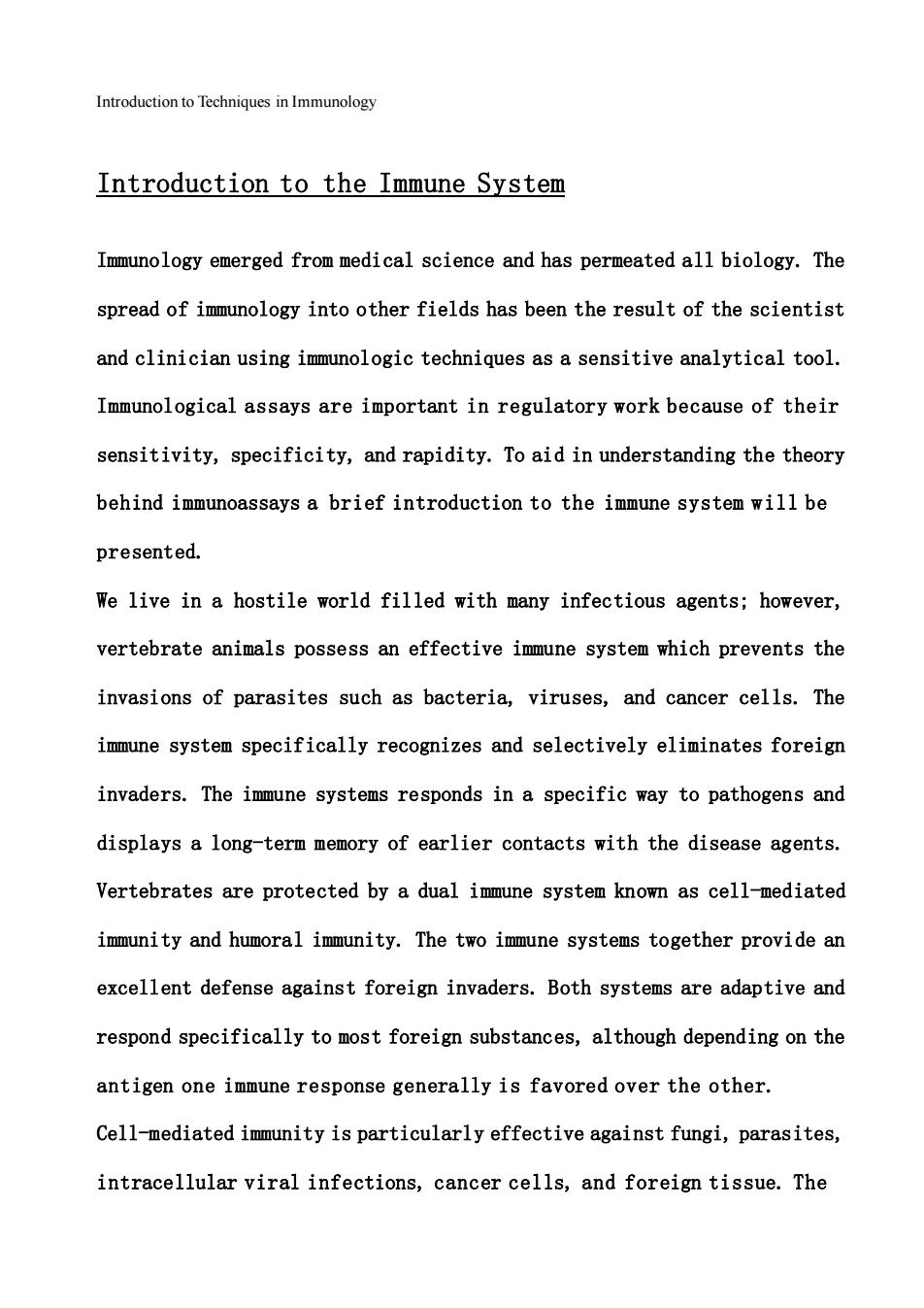正在加载图片...

Introduction to Techniques in Immunology Introduction to the Immune System Immunology emerged from medical science and has permeated all biology.The spread of immunology into other fields has been the result of the scientist and clinician using immunologic techniques as a sensitive analytical tool. Immunological assays are important in regulatory work because of their sensitivity,specificity,and rapidity.To aid in understanding the theory behind immunoassays a brief introduction to the immune system will be presented. We live in a hostile world filled with many infectious agents;however vertebrate animals possess an effective immune system which prevents the invasions of parasites such as bacteria,viruses,and cancer cells.The immune system specifically recognizes and selectively eliminates foreign invaders.The immune systems responds in a specific way to pathogens and displays a long-term memory of earlier contacts with the disease agents. Vertebrates are protected by a dual immune system known as cell-mediated immunity and humoral immunity.The two immune systems together provide an excellent defense against foreign invaders.Both systems are adaptive and respond specificallytomost foreign substances,although depending on the antigen one immune response generally is favored over the other. Cell-mediated immunity is particularly effective against fungi,parasites intracellular viral infections,cancer cells,and foreign tissue.TheIntroduction to Techniques in Immunology Introduction to the Immune System Immunology emerged from medical science and has permeated all biology. The spread of immunology into other fields has been the result of the scientist and clinician using immunologic techniques as a sensitive analytical tool. Immunological assays are important in regulatory work because of their sensitivity, specificity, and rapidity. To aid in understanding the theory behind immunoassays a brief introduction to the immune system will be presented. We live in a hostile world filled with many infectious agents; however, vertebrate animals possess an effective immune system which prevents the invasions of parasites such as bacteria, viruses, and cancer cells. The immune system specifically recognizes and selectively eliminates foreign invaders. The immune systems responds in a specific way to pathogens and displays a long-term memory of earlier contacts with the disease agents. Vertebrates are protected by a dual immune system known as cell-mediated immunity and humoral immunity. The two immune systems together provide an excellent defense against foreign invaders. Both systems are adaptive and respond specifically to most foreign substances, although depending on the antigen one immune response generally is favored over the other. Cell-mediated immunity is particularly effective against fungi, parasites, intracellular viral infections, cancer cells, and foreign tissue. The